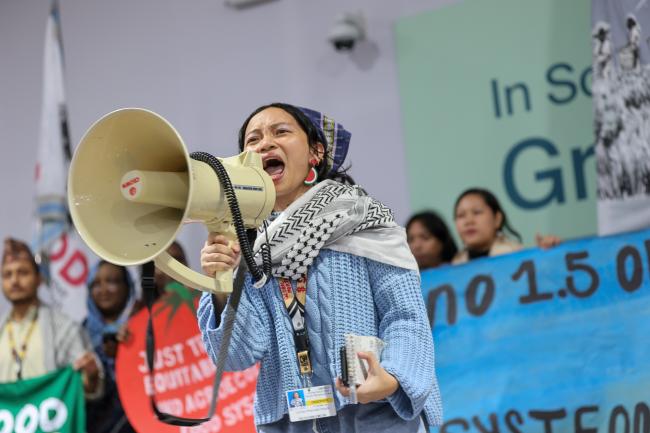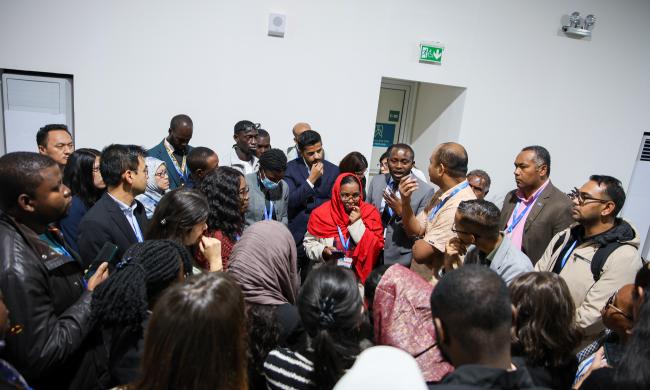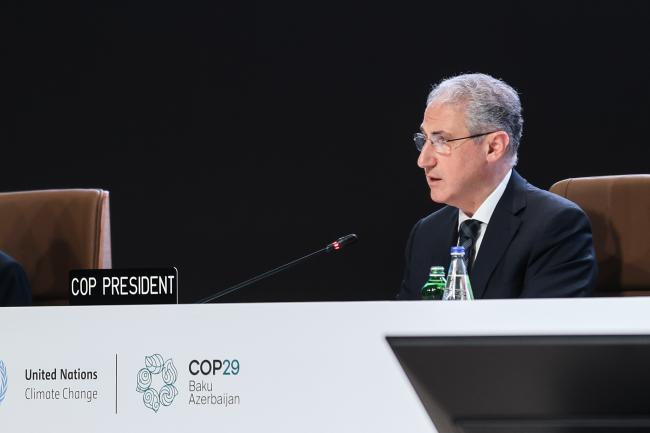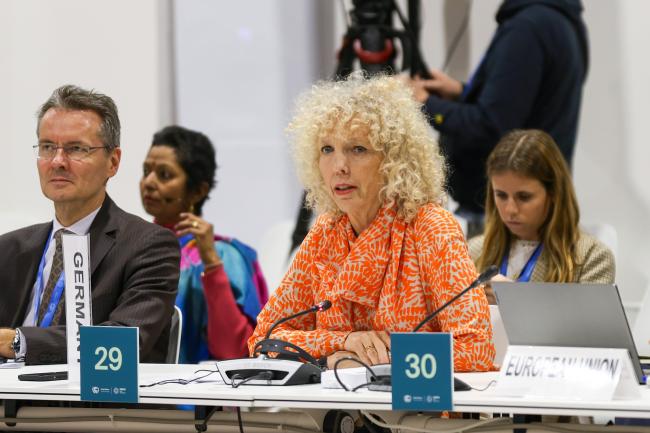Discussions at the 29th session of the Conference of the Parties (COP 29) to the UN Framework Convention on Climate Change (UNFCCC) took place in different formats. Heads of Delegation met in a drafting group to foster progress on the new collective quantified goal on climate finance—the key expected output of the Baku Climate Change Conference, on which not much progress has transpired so far.
Want to dig deeper into today's talks? Read the full Earth Negotiations Bulletin daily report.
Technical negotiations continued on a range of issues. Discussions on national adaptation plans progressed constructively, but parties eventually resorted to postponing further work to the June 2025 session of the UNFCCC’s Subsidiary Bodies. For three hours, delegates debated the possible transfer of funds from the mostly defunct Clean Development Mechanism under the Kyoto Protocol, in vain. This is in part due to some countries’ hesitation to support a transfer of funds to the yet-to-be running market mechanisms under the Paris Agreement.
In fact, all of the day’s discussions related to the Paris Agreement were sobering. Parties debated and made little progress on:
- procedures for future Global Stocktakes (GSTs), including with regard to input from the Intergovernmental Panel on Climate Change (IPCC) and enhancing linkages between the GST’s technical assessment and the political consideration thereof;
- whether and how to follow up on the implementation of the first GST’s outcomes;
- how to capture insights from the first edition of the annual dialogue on the GST informing the preparation of nationally determined contributions (NDCs), with some countries suggesting that what was established as an annual dialogue should be terminated after its first edition; and
- whether additional guidance on NDCs is needed and, if any, what it should be.
Highlights from the continued high-level segment included:
- the Alliance of Small Island States (AOSIS) supporting Australia’s bid for hosting COP 31, and urging for a minimum allocation of USD 39 billion for small island developing states, USD 220 billion for least developed countries, and inclusion of loss and damage in the new finance goal;
- Fiji underscoring that the money is there, it is just in the wrong place, namely fossil fuel subsidies;
- the Netherlands calling for others to join the coalition to phase-out fossil fuel subsidies;
- the EU pointing to the recent launch of a campaign for scaling up renewables in Africa; and
- Singapore emphasizing its work to mobilize private capital in the context of the “Financing Asia’s Transition”-initiative and to develop a regional energy grid that will foster green energy development.
To receive free coverage of global environmental events delivered to your inbox, subscribe to the ENB Update newsletter.
All ENB photos are free to use with attribution. For the 2024 UN Climate Change Conference Baku, please use: Photo by IISD/ENB | Mike Muzurakis




















































